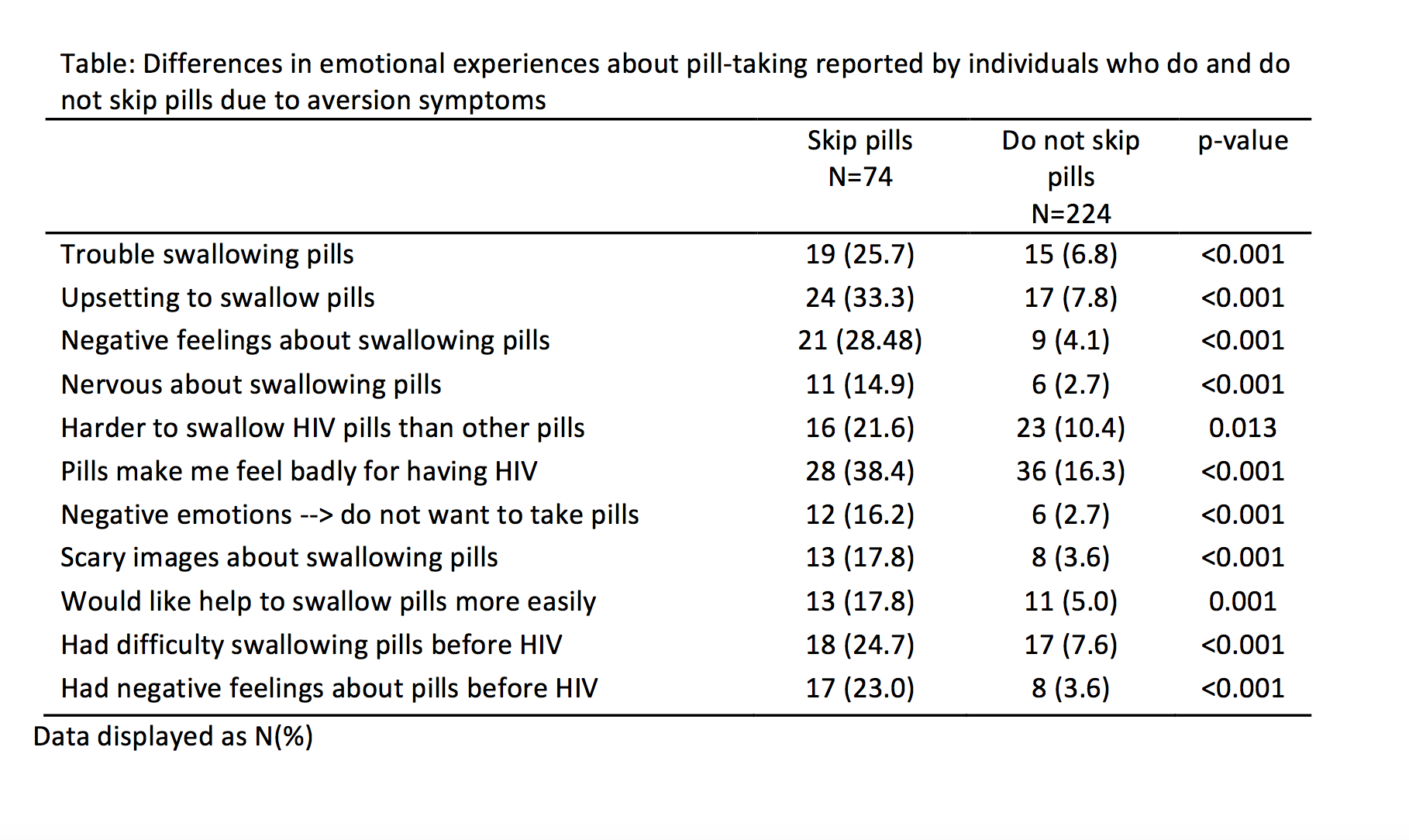Presenting Author:
Robin Dorman, Psy.D.
Principal Investigator:
Lynn Yee, M.D.
Department:
Obstetrics and Gynecology
Keywords:
Pill Aversion, HIV, Adherence, Pill Swallowing
Location:
Third Floor, Feinberg Pavilion, Northwestern Memorial Hospital
PH31 - Public Health & Social Sciences
HIV-Related Pill Aversion: A Novel Barrier to Adherence
Background: Pill aversion, defined as difficulty swallowing pills without identifiable medical cause as well as anxiety associated with pill swallowing, is a poorly-characterized barrier to sustained viral suppression in HIV-infected adults. We aimed to determine the prevalence of pill aversion in an adult outpatient HIV population and describe the relationship between symptoms and skipping pills. Methods: This was an observational study of HIV-infected individuals at a single urban tertiary care center. Participants attending HIV clinic were asked to complete anonymous questionnaires about their experience of swallowing HAART pills. The primary outcome was skipping pills due to pill aversion symptoms; this was defined as any affirmative response regarding skipping pills due to feeling uncomfortable taking them, problems swallowing them, or pill qualities. Descriptive statistics and bivariable analyses were used as appropriate. Multivariable logistic regression was utilized to determine factors associated with skipping pills. Results: Of 312 participants (mean age 47.8y), a majority were male (74.8%) and identified as white (48.4%) or non-Hispanic black (NHB; 40.8%). Nearly a quarter (24.8%) skipped pills due to pill aversion symptoms. Younger age, being NHB or Hispanic compared to white and having public insurance were associated with skipping pills due to pill aversion. Depression (27.6%) and anxiety (21.2%) were common and associated with pill aversion on bivariable analyses, but this association did not persist on multivariable analysis. Individuals who skipped pills were more likely to report a detectable viral load (25.7% vs. 8.5%, p=0.001) and have a lower self-reported adherence (79.4% vs. 94.9%, p<0.001). Importantly, participants who skip pills were more likely to report negative or fear-based emotions about their pills (Table). Participants who skipped pills were more likely to report sensations of gagging (13.5% vs 5.0%, p=0.013), choking (9.5% vs 1.8%, p=0.003), pills getting stuck in the throat (24.3% vs 9.0%, p=0.001), a heavy feeling in the stomach (18.9% vs 0.9%, p<0.001), as well as being bothered by the taste, smell, and size of pills (all p<0.001). Conclusions: HIV-related pill aversion is surprisingly frequent. Symptoms of pill aversion are a significant and novel barrier to adherence in an adult HIV population. Further investigation regarding generalizability, prevalence, and characterization of pill aversion is essential and may have implications for the cascade of care.

